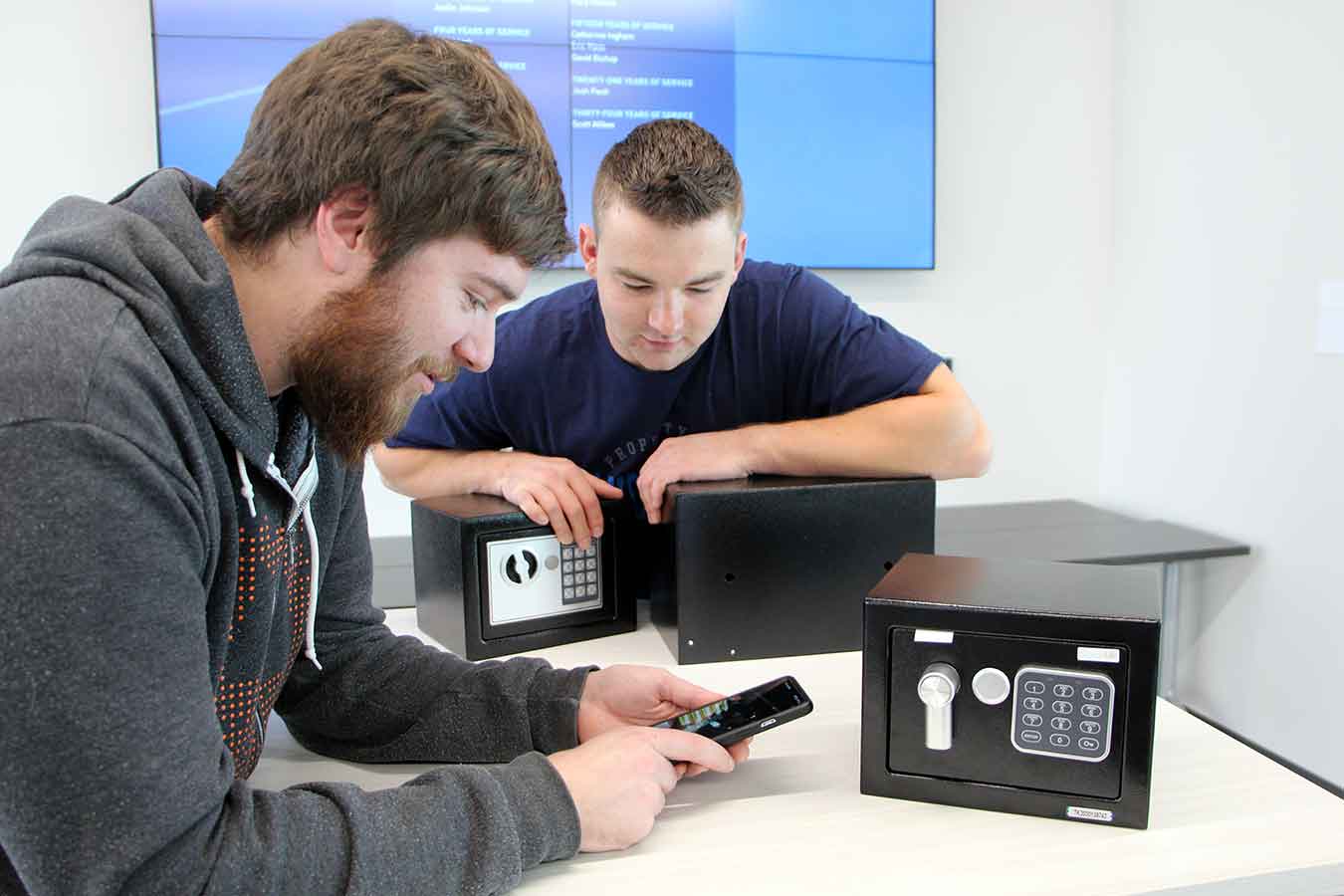Differentiating Research Skills
November 18, 2021
How safe is a hotel safe?

That’s the question Jakob Kaiser is hoping to answer.
The junior Cyber Operations major had a goal to be involved in as many things as he could this academic year, so when he heard about Dakota State’s Student Research Initiative (SRI) program, he thought this seemed like a great opportunity.
“These types of research projects are important to the future,” Kaiser said, “and they’re fun.”
He reached out to Andrew Kramer, instructor of Computer and Cyber Sciences, and they kicked around ideas on research projects involving physical security with key cards or scanners.
“The importance of physical security is just as essential as cyber security,” said Kaiser, and is “definitely something that is overlooked in the presence of security.” Yet, both are needed to “provide efficient security for people’s assets.”
The topic of hotel safes then came up in conversation and “that seemed very cool to research,” Kaiser said. A quick search revealed a nice balance of research available, Kramer stated, so Kaiser is not starting from zero, but there’s still an unexplored territory with the topic.
Kaiser submitted a proposal and was one of eleven undergraduate projects funded for the academic year 2021-2022. The title of his work is “Testing Hotel Safe Vulnerabilities: Analyzing and determining the vulnerabilities in commonly used hotel safes.” Kramer serves as Kaiser’s faculty mentor.
Kaiser is very grateful for this opportunity, especially as an undergraduate.
Kramer is also impressed that Dakota State supports this kind of research at the undergraduate level. “This is unusual,” he said. “Students don’t usually get these opportunities until they are in graduate school.”
This opportunity provides a great advantage for the students in their careers.
When they leave to enter the workforce, all candidates will have a degree, a GPA, probably some club work, Kramer said, but “an employer will want to talk about more, so the skills students develop on these projects are unique and differentiating.”
Some of these skills include communication and public speaking, through hands-on demonstration-based presentations. This provides students with “the ability to explain something to people who are not in research is critical to any job he may someday have,” Kramer said.
Providing students with these opportunities “is telling about what type of university we have here with undergraduate research,” Kramer said.
